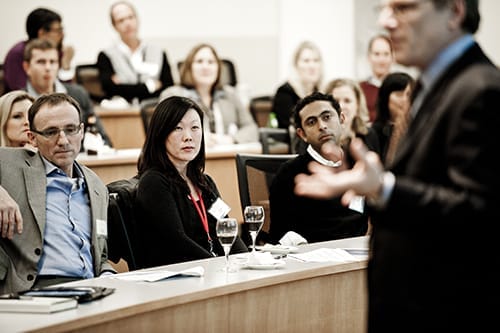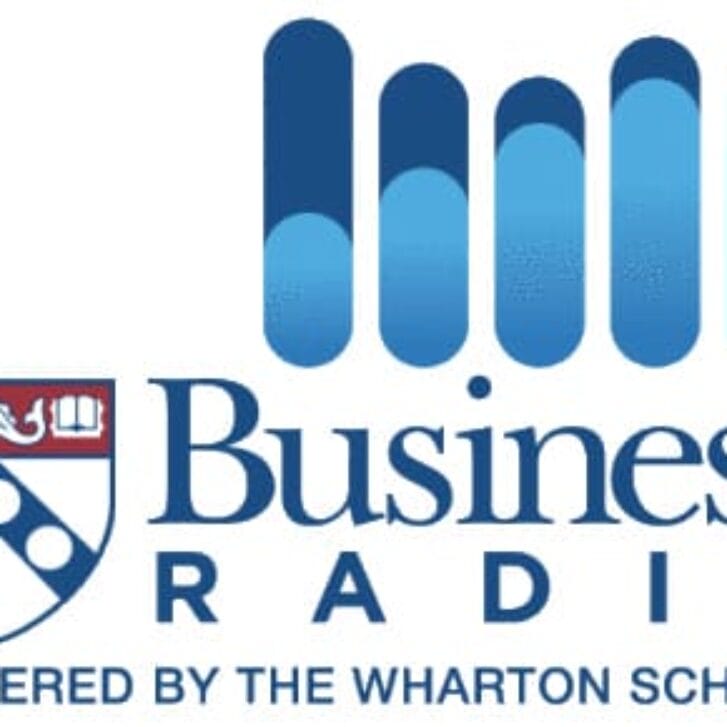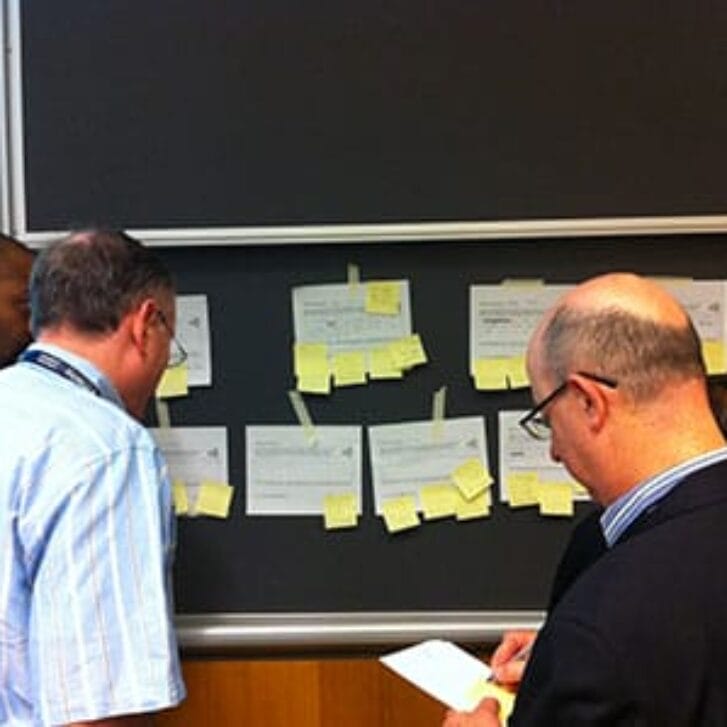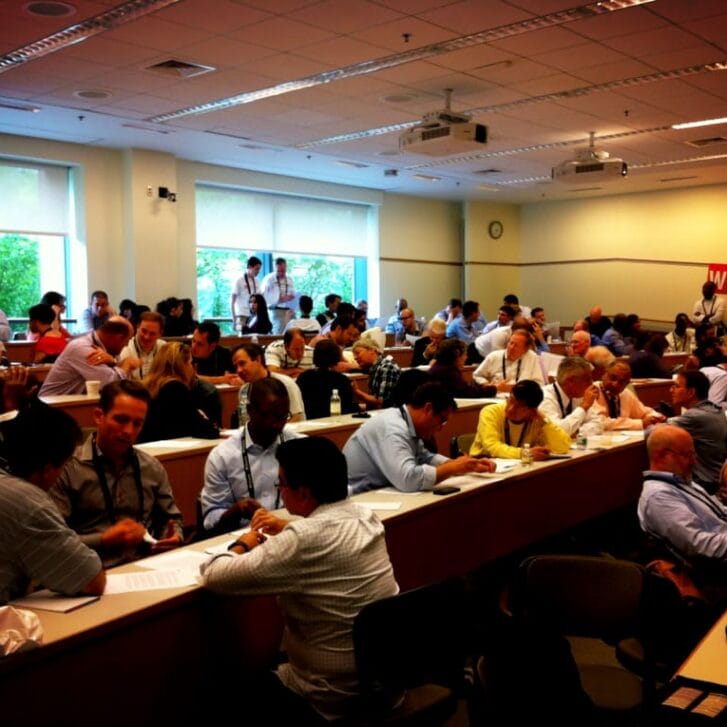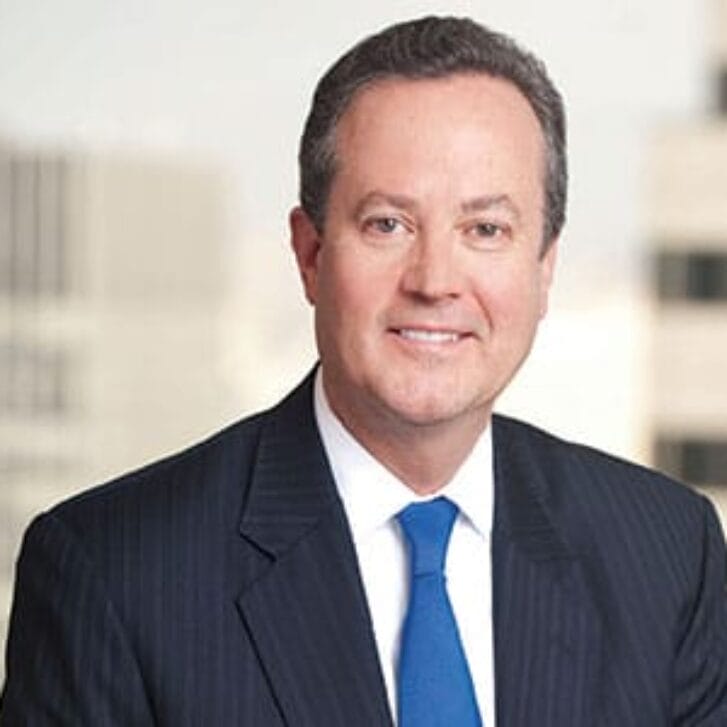The Wharton | San Francisco campus was the site of the best-attended Knowledge for Action Lifelong Learning Tour Master Class to date. Stew Friedman, Practice Professor of Management and director of the Wharton Work/Life Integration Project, enthralled more than 150 alumni with a presentation on leadership and work/life integration.
Friedman knew going in that the attendees had “opted in” to the programming, but he was still impressed with their engagement level.
“I was hoping that I would have the full attention of the participants for my hour,” he says. “I totally had that.”
Participants wrestled with the material during his lecture, asking questions and expressing their curiosity. When presenting his expertise, Friedman often finds himself having to persuade the audience, he says. That was not the case in San Francisco. Wharton alumni were a “friendly audience,” he says, who wanted to learn.
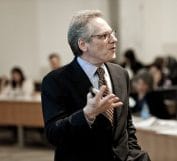 Part of his Master Class focused, indeed, on what has become a controversial and timely topic. No, don’t call it work-life balance, according to Friedman. It is work/life integration. The difference is that, with the term balance, people assume that you have to sacrifice “life” to succeed at work, or vice versa. Friedman teaches that individuals can succeed at having “four-way” wins—at work, at home, in the community and for oneself. Devoting more attention and brainpower on the other three wins can actually lead to better results at work—a conclusion that Friedman finds himself arguing for among most audiences.
Part of his Master Class focused, indeed, on what has become a controversial and timely topic. No, don’t call it work-life balance, according to Friedman. It is work/life integration. The difference is that, with the term balance, people assume that you have to sacrifice “life” to succeed at work, or vice versa. Friedman teaches that individuals can succeed at having “four-way” wins—at work, at home, in the community and for oneself. Devoting more attention and brainpower on the other three wins can actually lead to better results at work—a conclusion that Friedman finds himself arguing for among most audiences.
Indeed, even the professor’s research bears out that most people still believe in the old model. The Wharton Work/Life Integration Project released results (to much recent media attention) of a study of the Wharton undergraduate classes of 1992 and 2012. The findings demonstrate that today’s young adults feel the need to sacrifice for work, and are more willing to do so. For instance, 42 percent of both women and men in 2012 responded that they are expecting to have children. In the 1992, the responses were 79 percent for women and 78 percent for men. (Go to the Wharton Work/Life Integration Project website for the full results.)
“It’s definitely an alarm for us as a society,” Friedman says about the findings.

Alumni enjoy each other’s company, and the view, at the San Francisco campus.
This research was part of Friedman’s overall presentation for San Francisco attendees, which essentially was an overview of his Total Leadership course—offered to MBA for Executives, MBA and Exec Ed students—and his book of the same name.
For Friedman, another gratifying part of his Master Class was the opportunity to be with students he had not seen in decades. He enjoyed the chance to catch up with several of them, and the other alumni attendees, during the receptions before and after his lecture.




















